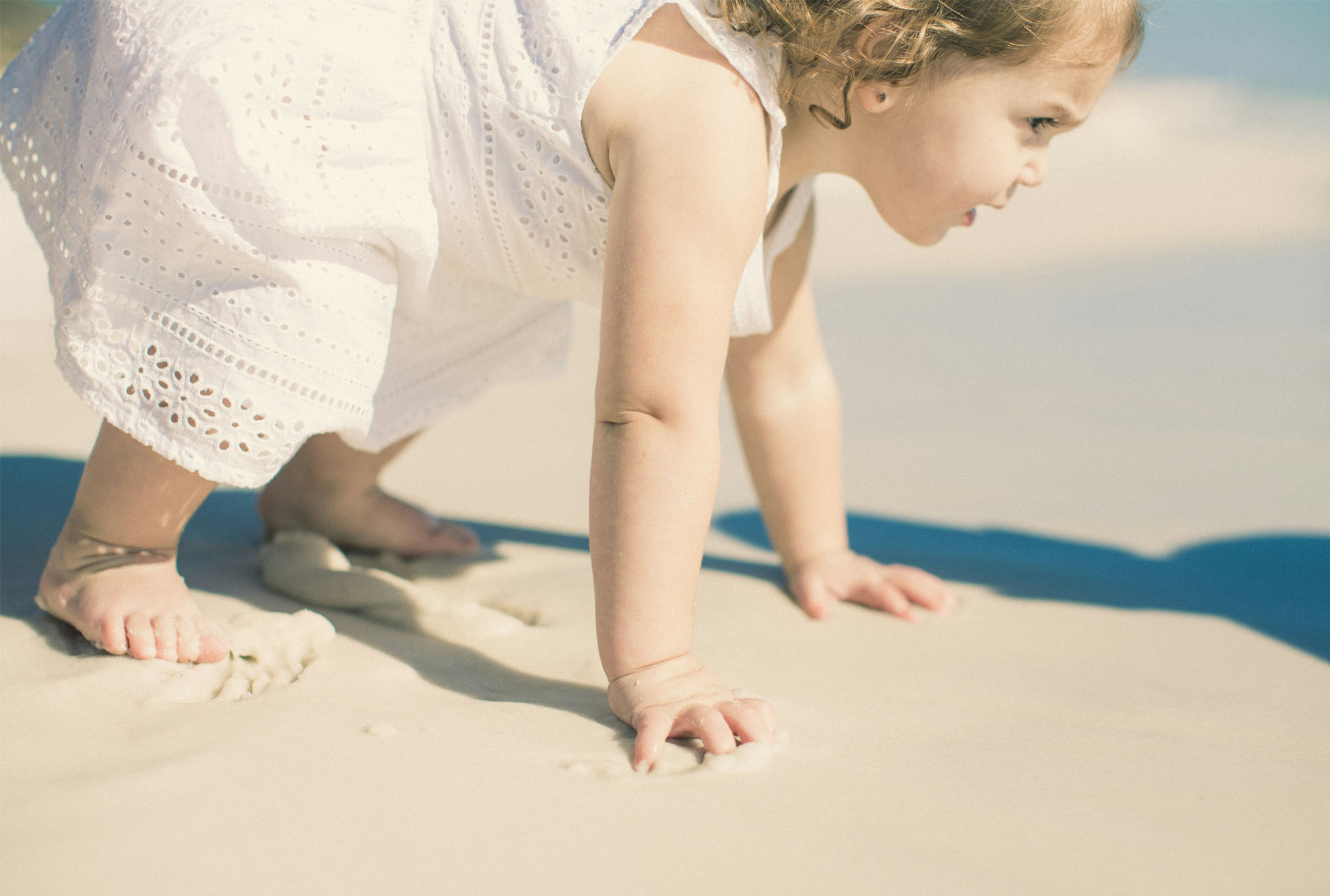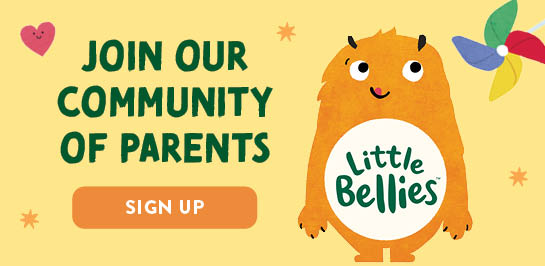A Guide to 10-Month-Old Baby Milestones: What’s New?
Reading time:
Reading time:

By Nicole Lattanzio, RDN, CSP, IBCLC
If you find yourself googling away in the middle of the night while wondering if your baby is on track, you are not alone! You may have found information in your search about something called “milestones.” Developmental milestones serve as benchmarks to gauge how a baby is developing in various categories and at specific ages. Tracking when these milestones occur is important as it helps you as a caregiver understand what to expect at different stages and identify any potential challenges early on. Bonus: Keeping track makes well-check appointments with the paediatrician even smoother! As a caregiver, it’s natural to have concerns and anxieties about whether your baby is developing as expected. This guide aims to provide guidance on developmental milestones for 10-month-old babies to help you feel confident in supporting your baby.
“Developmental milestones” are specific skills or behaviours that most children can do within a certain age range. They are used to assess your baby’s physical, cognitive, communication, and social-emotional development.
These milestones can be categorized into several groups:
It’s important to remember that every baby develops at their own pace. Some babies achieve a milestone ahead of plan while others take a bit longer to master one. Babies who were born prematurely often reach milestones later. Variations in when milestones are met are perfectly normal! Milestones should be viewed as general guidelines rather than rigid benchmarks.
There are several important milestones that take place around 10 months of age. Your baby is constantly learning and may be showing more and more interest in their surroundings. Physically they’re becoming proficient with current skills and gaining more as well. With growing and learning, there is always lots of adjusting that takes place for you as a caregiver along with your baby.
Milestones that typically occur around 10-months-old include:
Motor:
Cognitive:
Sleep:
Communication:
Social-Emotional Milestones:
As mentioned above, missing one milestone does not necessarily indicate a problem! It’s common for babies to not meet 100% of milestones listed. If there are consistent delays noted, especially in certain areas, further evaluation may be needed.
There are times babies may not meet milestones by the expected timeframes. While some variability in time to achieve milestones is normal, these skills are still meant to be achieved within a certain amount of time.
Warning signs specific to each milestone category to look out for include:
Motor: Difficulty with basic movements like sitting unsupported, are not crawling yet, not learning to eat solid foods
Cognitive: Lack of interest in looking at or playing with toys, not turning their head towards sounds or voices, difficulty solving simple problems that are appropriate for age
Sleep: Sleep regressions lasting longer than six weeks, excessive daytime sleepiness, sleep challenges accompanied by weight loss or excessive irritability.
Communication: Lack of gesturing to communicate, not responding to their name, minimal babbling or attempts to produce simple words like mama or dada
Social-Emotional: Lack of interest in interacting with others (i.e. not smiling or making eye contact with caregivers), not showing a range of emotions
If noticing any of these red flags, reach out to your paediatrician to discuss more. They can evaluate and determine if referring to developmental specialists. Seeking support early on is crucial in supporting your baby’s growth and development and preventing any further delays.
Developing early vs later is multifactorial. While there are some components that you have minimal or no control of (i.e. genetics, environment, socioeconomic status), you do have influence with others such as engagement and nutrition!
Interacting with your baby through play, talking, and reading promotes cognitive and social development. Personal time with your baby is especially important when screens are present all around us (and baby!). Reducing screen time as able and having personal interactions with your baby build on these developmental skills, particularly for language development and social-emotional learning. Additionally, creating a baby-friendly home environment that allows your baby to safely explore their surroundings is crucial. Providing a safe space for your baby allows them to move freely and problem solve when challenges present.
The food baby eats also plays a large role in their development. Nutrients such as DHA, iron, choline, and other vitamins and minerals support cognitive development and brain growth, which are essential as your baby learns new skills and explores their environment. Additionally, nutrients found in whole foods including produce and whole grains are crucial for the developing immune system and digestive tract. Providing a balance of nutrition through appropriate number of solid food meals/snacks for age in addition to their breastmilk/formula feedings in infancy is vital.
The type of textures and sizes of foods we offer at meals and snacks also benefit babies. Feeding times are an opportunity for oral skill development and fine motor skill. This is why advancing the stages of baby food is so important! Stage 3 and 4 of baby food promote further oral motor development for age when compared to stage 1 or 2. The advancement to finger foods is crucial in promoting feeding skill development and avoiding preventable delays from occurring. Additionally, feeding times offer important sensory experiences. Eating involves all the senses – tasting sweet vs bitter, hearing crunch, touching wet textures, smelling appetizing food, seeing a rainbow of colours. This sensory experience helps your baby to expand their palate and contributes to acceptance of new foods.
Developmental norms can vary widely across cultures. Differences in feeding practices, emphasis on motor skills, parental interactions, social interactions, and more impact when milestones are achieved. These differences are all personal and need to be based on family dynamics and overall goals. As such, it’s important to recognize and respect these differences. What is typical in one culture may not be in another, not to mention that every baby is unique and develops at their own pace.
Understanding and tracking your baby’s developmental milestones can provide useful information to help you support their development. Remember that every child is unique and will reach milestones at their own pace and variabilities will also depend on numerous factors (culture, lifestyle, family dynamics, etc). Do what you can to support your own baby in growing their skills such as by playing with them and providing positive mealtimes. By educating yourself and seeking professional advice early on when needed, you can feel at ease supporting your baby on their developmental journey!
Photo by Jordan Christian on Unsplash

Let’s Make It Official
Get the latest news on parenting tips, food play hacks, promotions and giveaways!
Subscribe Now